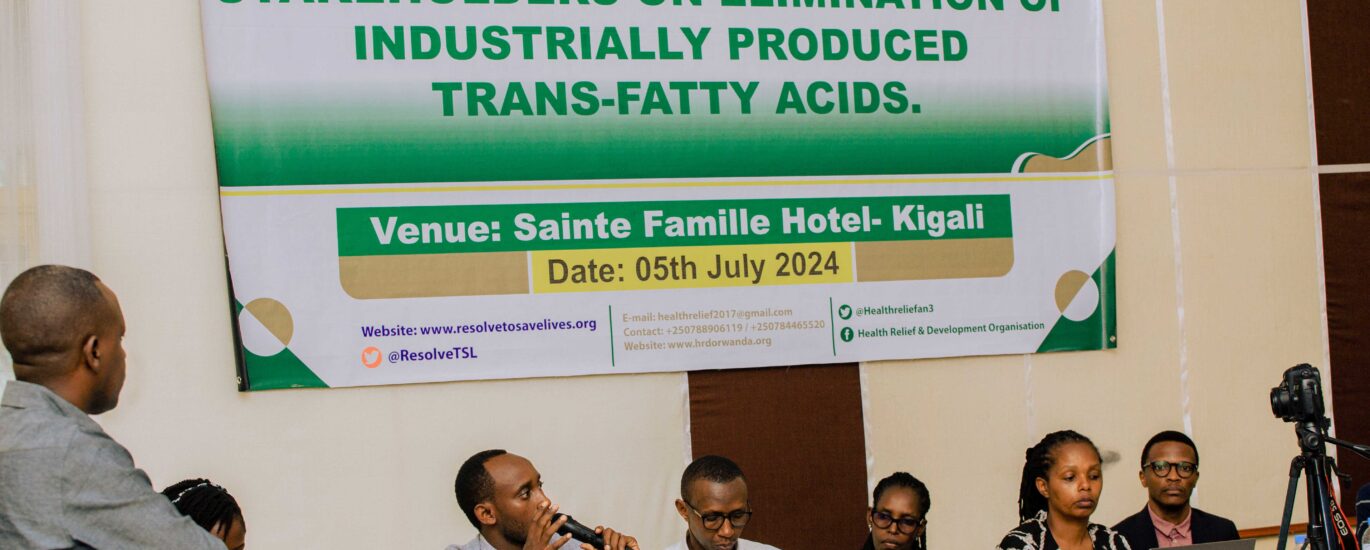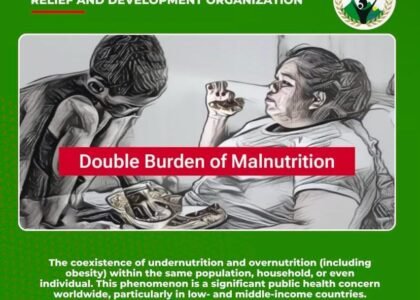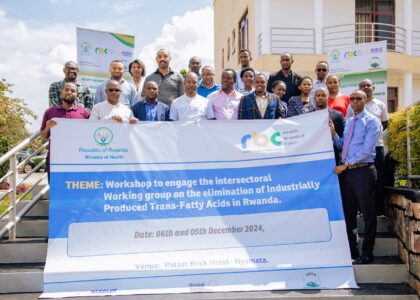Elimination of industrially produced trans-fatty acids (TFA) from the global food supply by 2023 is a priority target of the World Health Organization (WHO). Trans -fatty acids (TFAs) are unsaturated fats found in foods obtained from ruminants, such as dairy products and meat, and in industrially produced partially hydrogenated vegetable oils (PHO) – the main sources of industrial trans-fatty acids (iTFA). The main risks associated with iTFA consumption are heart attacks and death from heart diseases, even though options to replace iTFA with healthier oils and fats exist and can be implemented. However, healthier oils are having higher cost in Rwanda but the cost of iTFA’s consequences are much higher. In May 2018, the World Health Organisation (WHO) launched the REPLACE action package to support governments to eliminate iTFA from the global food supply by 2023. Health Relief and Development Organisation under the support of Global Health Advocacy Incubator conducted the Landscape analysis to review the regulatory framework, production, supply chain and level of consumption iTFA in Rwanda and assesses possibilities around enforcing development of Law for elimination of industrially produced trans-fatty acids from the national food supply and enhance iTFA replacement in the food value chain in Rwanda. This report indicates that there is inadequate level of awareness about iTFA and according to Rwanda Food and Drugs Authority (RFDA) as the responsible regulatory body in Rwanda, policies and regulations are not yet developed, enforced and implemented. Based on the market survey, on-site visits conducted, sources of iTFA in the food value chain in Rwanda are partially hydrogenated oils and fats and in deep- fried fast food, potato chips, doughnut (mandazi), bread, cakes, chapati where PHO are used as ingredient. The African Improved Foods industry can effectively test iTFA in food samples, but the laboratories at the Rwanda Food and Drugs Authority and Rwanda Standards Board lack the necessary capacity for such testing.
Also since 2021, HRDO implements the Building Resilient Families in Rwanda Project where more than 540 Single and Teen mothers were empowered and supported for the Income Generating Activities and these activities generated more than 18,000,000 Milion Rwandan Francs. Nutrition education programs have been tailored into this project for nutrition sensitive allocation of the income and this has longterm impact of preventing stunting of children born in these vulnerable families. This project was initially funded by Segal Family Foundation and later funded by the Ministry of Youth and Arts –Rwanda, Toyota- Rwanda.






